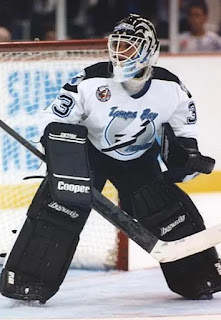Part 4 (final) of our list of badass female athletes
Listen to the Podcast on Spotify
Email me: kelly@thebitchwhisperer.me
The Latest Podcast Episode is here:
OK, we are wrapping up this series on amazing female athletes with part 4, and the remainder of our list of badasses...which is by no means exhaustive. There are women breaking competitive records every day, so I'm sure we will revisit this topic later.
10 Debi Thomas (figure skating)
In a sport that highly values traditional femininity and whiteness, Debi Thomas is a trailblazer. She’s the most successful African American figure skater of all time, winning two national championships and one world championship. She was the first African American to win any medal at the Winter Olympics when she took the bronze in 1988, during which she was simultaneously studying premed at Stanford.
Thomas was seen as the only skater who could beat the talented Katerina Witt at the 1988 Winter Olympics. They both skated to music from Bizet’s opera “Carmen,” and their rivalry at the Olympics was known as the Battle of the Carmens. Thomas was in first place before the long program, but she stumbled on the second of two three-spin jumps placed right at the beginning of her routine. That mistake immediately doomed her chance for gold, and while she took home the bronze, she was never able to forget that mistake.
Thomas, who had gotten three nose jobs to visually fit in with white skaters and trained to make her powerful style appear more feminine, retired from skating after the Winter Olympics and returned to Stanford. She graduated in 1991, went to medical school, and became an orthopedic surgeon. She was inducted into the U.S. Figure Skating Hall of Fame in 2000 and told ABC Sports that she was still disappointed about her Olympic long program.
Thomas’s self-described “Olympic mentality” made her difficult to work with, and she had employment problems. In 2010, she left her husband and teenage son to start a private practice in the economically depressed town of Richlands, Virginia, and soon fell behind on bills. She lost her practice and her medical license lapsed.
The court diagnosed her with bipolar disorder after she threatened to hurt herself in 2012, but she resisted the diagnosis. As of 2016 she was not receiving treatment and living with her fiancé and his two sons in a trailer in Richlands. All her medals, including her Olympic bronze, have been seized by the bank.
11 Manon Rhéaume (ice hockey)
In 1992, 20-year-old Manon Rhéaume broke new ground for women in sports. In September of that year, Rhéaume became the first woman to play for any of the four major North American sports leagues. She suited up for a Tampa Bay Lightning exhibition game, spending one period tending net as a goalie.
That was an important first for Rhéaume, and for female athletes, but that was far from her first trailblazing accomplishment. In 1984, the Quebec native became the first female goaltender for a boys’ team at the Quebec International Pee-Wee Hockey Tournament. Just before she played for the Lightning, she was the first woman to play in a men’s Major Junior hockey tournament.
Rhéaume didn’t make the team after her appearance in 1992, nor did she a year later when she played in another exhibition game for the Lightning. Between those two games, she became the first woman to play in a regular-season professional game when she appeared for the Atlanta Knights of the International Hockey League.
With no professional women’s hockey league, Rhéaume played whenever she could for the next five years. She retired from professional hockey in 1997, but won silver for Canada at the 1998 Winter Olympics. She transitioned into coaching at the college and kids’ levels, but made a return to the ice for the IHL in 2008 and 2009 before her playing days ended for good.
No woman has played in an NHL game since Rhéaume. Women’s hockey is thriving at the college level and beyond, and now she knows that what she did as a 20-year-old inspired a generation of hockey players.
“When I was young and got invited, it happened so fast and I didn’t realize really the impact I would have on people, on history, on everything when I went there,” she told NHL.com in 2019. “Through the years, having so many people come up to me, telling me that I inspired their daughter or son, or someone saying, 'I had your poster on my wall,' that makes me realize my story impacted a lot of people in a positive way."
12 Lyn St. James (racing)
Lyn St. James made history on the racetrack, proving that women of any age belong in racing. In 1992 she became the second of just nine women to qualify for the Indianapolis 500, and was the first woman to ever win the Indy 500’s Rookie of the Year award, which she did at 45 years old.
St. James has spent her life racing cars. Her mother taught her how to drive at 15, and was just 17 when she was challenged to a race after criticizing a driver who had lost a heat. She had been told that if she thought she could do better, she should. So she did in 1974 when she began competing in Sports Car Club of America races in Florida, and overcame a rough start to her career to win regional championships in 1976 and 1977.
St. James turned pro in 1979, and by 1981 had convinced Ford to sponsor her racing career. She traveled and spoke on behalf of the company, not winning a race for Ford until 1985. That same year she hit 200 mph on the race track, the first woman to ever break that barrier on an oval. She set a speed record at Talladega in 1988, but Ford dropped her in 1991.
The best was yet to come. St. James finally started to get wider attention after racing in TransAm, which appeared on the IndyCar under-card. Teams began to notice her, and after testing for Dick Simon Racing she was given the chance to compete in the Indy 500. She finished 11th and became the oldest driver to ever win the Rookie of the Year award.
St. James continued racing until retiring in 2000 at 53. She wrote a book and continued public speaking, becoming an ambassador for racing as a sport and tirelessly working to get more women involved.
13 Mo’ne Davis (multi-sport)
In 2014, at the age of 13, the Philadelphia native Mo’ne became the first African American girl to ever play in the Little League World Series. She was the first female to pitch a complete game shutout and when she led her team, the Taney Dragons, to victory, it marked the first win for a female pitcher. Mo’ne made "throwing like a girl" something to envy. She also won championships while playing for both the soccer and softball teams and was a four-year varsity basketball player.
Mo’ne is no longer playing baseball, but she made the move to a similar sport: softball. She became an infielder on the Hampton University softball team in 2020. Mo’ne graduated from the school with a degree in communications in 2023. She is currently pursuing a master’s degree in sports management from Columbia University. She hopes to open doors for girls and women and continue to be an inspiration to others. “In 10 years from now, I will be adding a WNBA team and NWSL team to Philly,” Davis said. “I want to really be able to look back, just enjoy the journey, and realize how hard I worked for that to happen.”
14 Hilary Knight (ice hockey)
Although it wasn’t the medal she hoped for, U.S. Women’s National Team Captain Hilary Knight became the most decorated athlete in Women’s World Championship history by earning the 14th medal of her career this past weekend at the 2024 IIHF Women’s World Championship.
The U.S. and Canada played one of the most frenetic, electric and exciting games in the history of women’s international hockey Sunday night in front of a record 4,182 fans at the Adirondack Bank Center in Utica, New York. In the end, the United States fell to Canada in overtime, 6-5, to leave Western New York with a silver medal.
************
And that's it for now.
Lisa and I will be recording this week for a fresh episode next week, and we are going back to ancient times...so pack accordingly.
Thanks for reading <3




.jpeg)